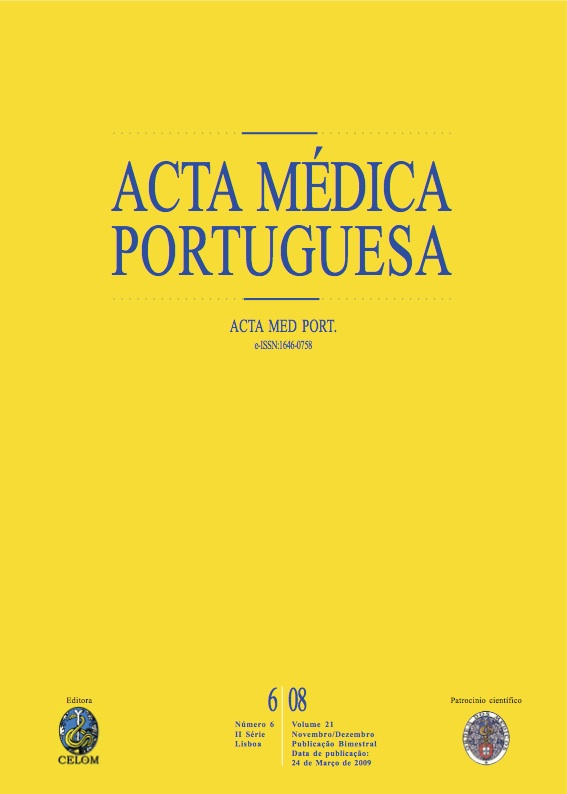Associação entre o polimorfismo funcional do promotor ligado ao transportador da serotonina (5-HTTLPR): agressividade externalizada e internalizada e abuso do álcool.
DOI:
https://doi.org/10.20344/amp.825Resumo
Genetic factors of alcoholism influence the phenotypic heterogeneity of alcohol dependence, allowing the higher or lower expression of related aggressive behaviours. The pathogenesis of alcoholism and anti-social behaviour has been connected to serotonergic system dysfunction, given support to examine the association with 44-basepair insertion/deletion polymorphism of serotonin gene transporter (5-HTT). The study aims to assess the relationship between 5-HHTLPR polymorphism, aggressive behaviour and alcohol consumption pattern. There were recruited 97 alcohol dependent patients from the alcoholism unit (Etilo-Risco) of the Psychiatric Service of Santa Maria Hospital. Blood for DNA extraction and clinical and behavioural information was collected during the therapeutic program. Regarding 5-HTTLPR polymorphism prevalence in alcoholic population, 30.7% were homozygotic to l allele, 19.8% were homozygotic to s allele and 49.5% were heterozygotic l/s. Alcoholic patients carrying the l allele from 5-HTTLPR genotype showed significant lower scores of aggressivity during acute alcohol consumption, and alcoholic patients carrying the s allele showed significant higher scores of aggressivity (during acute alcohol consumption and abstinence), however, the results were not significant. The association between the functional nature of the s allele of 5-HTTLPR polymorphism with aggressive behaviour is in agreement with the general models of aggressivity that report low levels of central serotonergic activity related to impulsive and anti-social behaviours. The results demonstrate an association between 5-HTTLPR polymorphism and the auto and heteroaggressive behaviour in alcohol dependent population, particularly when aggressivity appears under acute alcohol consumption. During acute alcohol consumption stage, the presence of the l allele may act as a protective factor of aggressive behaviour risk, whereas the results tendency showed the s allele as susceptibility factor. Data suggests that the presence of s allele may confer a genetic vulnerability factor to the development of aggressive behaviour in alcohol dependent subjects, specially, in interaction with acute alcohol consumption stage.Downloads
Downloads
Como Citar
Edição
Secção
Licença
Todos os artigos publicados na AMP são de acesso aberto e cumprem os requisitos das agências de financiamento ou instituições académicas. Relativamente à utilização por terceiros a AMP rege-se pelos termos da licença Creative Commons ‘Atribuição – Uso Não-Comercial – (CC-BY-NC)’.
É da responsabilidade do autor obter permissão para reproduzir figuras, tabelas, etc., de outras publicações. Após a aceitação de um artigo, os autores serão convidados a preencher uma “Declaração de Responsabilidade Autoral e Partilha de Direitos de Autor “(http://www.actamedicaportuguesa.com/info/AMP-NormasPublicacao.pdf) e a “Declaração de Potenciais Conflitos de Interesse” (http://www.icmje.org/conflicts-of-interest) do ICMJE. Será enviado um e-mail ao autor correspondente, confirmando a receção do manuscrito.
Após a publicação, os autores ficam autorizados a disponibilizar os seus artigos em repositórios das suas instituições de origem, desde que mencionem sempre onde foram publicados e de acordo com a licença Creative Commons









